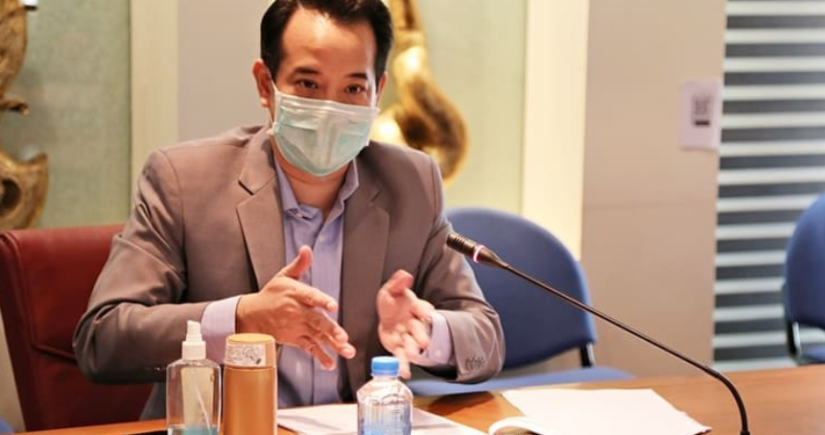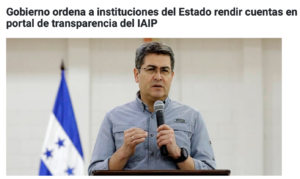Contents
Transparency and accountability in the Covid-era
Participation and collaboration in the Covid-era
Introduction
The Covid-19 pandemic has struck with unprecedented scale and severity, exposing fragilities in health systems and political leadership worldwide. Whilst the magnitude of the pandemic is new to us, the state of emergency it has triggered has been seen previously in crises where governments are called to act fast and public controls are relaxed to expedite emergency spending. Hurried – and often uncoordinated responses – in conditions of relaxed controls provide ripe ground for abuse and inefficiency.
Responses in past health and climate related disasters are proof of the high risks posed to the integrity of public finance management, with fraud and corruption diverting precious resources in times they are needed the most. In the public health care system alone corruption consumes over US$ 500 billion a year.
The pandemic has had an immediate impact on CoST programmes. CoST teams are working from home and all international travel has ceased. Programmes are respecting social distancing and mass events have been cancelled.
Despite the adverse scenario, examples of new good practice have emerged worldwide. In a short period of time, CoST activities have been reshaped, readjusted and redesigned to this unprecedented, new reality. The agile transformation seen in the programmes is a sign of the adaptability of the CoST approach and the versatility of our collaborators and supporters in government, businesses, media and civil society who are using these challenging times to reimagine transparency, accountability and participation in a world of social distancing and greater corruption risks.
This is our attempt to keep a public, open and ongoing record of the innovative good practice being deployed by our members worldwide. It will be regularly updated to capture the new and diverse ways ours members are responding to the crisis without being exhaustive. It therefore does not do justice to the persistent effort and invaluable work being developed on the ground.
Transparency and accountability in the Covid-era
Around the world emergency procurement is being enacted to supply equipment, services and new healthcare facilities. And whilst emergency procedures are needed, they should remain publicly accountable for every contract concluded during the outbreak through real-time transparency mechanisms.
Online data platforms
Of particular value to the crisis are open data platforms and tools which track and analyse procurement processes and public disbursements. As relaxed controls and reduced parliamentary oversight is seen – the tools are swiftly putting key information on public expenditure in the public domain in an accessible format. Over the past several years our members have been deploying these tools and seen a leap in data disclosure on infrastructure projects as a result.
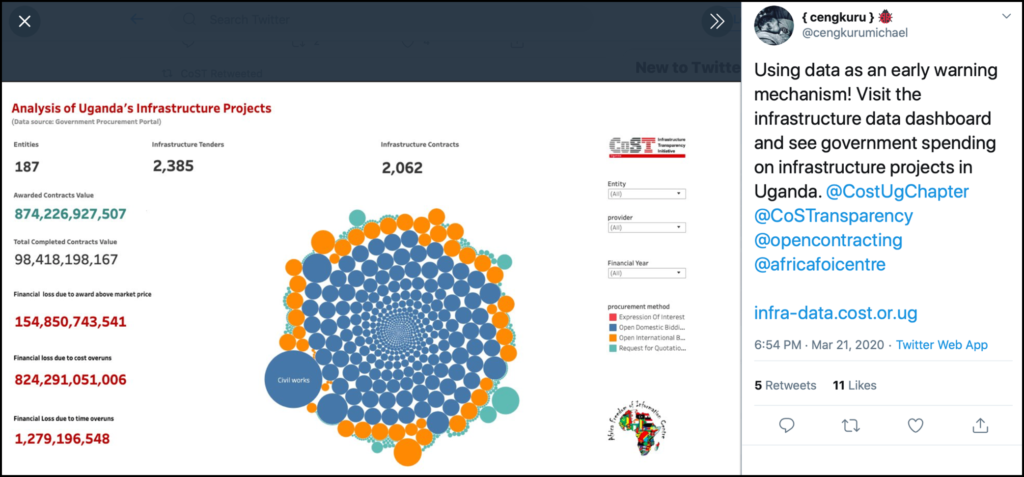 CoST Uganda has adapted its activities by using a dashboard system connected to the government e-procurement portal that has been adjusted to track projects implemented during the pandemic.
CoST Uganda has adapted its activities by using a dashboard system connected to the government e-procurement portal that has been adjusted to track projects implemented during the pandemic.
The system uses data analytic tools to identify red flags in infrastructure projects, to keep both technical experts and ordinary citizens aware of issues throughout the project cycle. CoST Uganda has also adapted its assurance process – an independent review of a sample of infrastructure projects which turns data into compelling information. It will now embrace the rapid pace of the emergency, producing insight reports with relevant findings on projects every two months based on the data gathered from the CoST dashboard.
In Honduras, Panama and Guatemala, the programmes have advocated that government and public entities comply with legal mandates on data disclosure in accordance with the CoST Infrastructure Data Standard (CoST IDS), and to keep infrastructure portals updated throughout the crisis. Ensuring the programmes’ renowned platforms SISOCS, PanamaenObras and Guatecompras remain operational and are disclosing timely data is key to counter procurement risks.
In September, Panama’s Public Procurement Law was amended to include an article on Open Data in Public Procurement. This means procuring entities are now obliged to publish all data related to public contracting on the PanamaenObras and PanamaCompra systems, in an open data format. Following this announcement, CoST Panama met with the National Authority for Transparency and Access to Information (ANTAI) in October to define the next steps towards publishing open data on PanamaenObras.
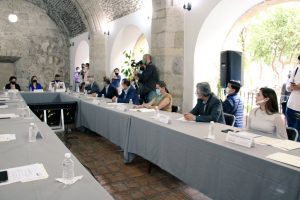
CoST Ukraine is using the pandemic to focus on the disclosure of road projects with more than 7,300 projects now available on its analytical dashboard. In Ukraine recent procurement legislation applied to road works has caused concern, particularly in relation to its concept of ‘similar works’. The lack of clarity in the definition of what ‘similar works’ would entail has left procuring entities with broad powers to interpret the regulation as they see fit, which could create opportunities for abuse and fraud. This is particularly alarming given that a public road programme was put at the centre of the country’s recovery plans.
CoST Jalisco convened its first multi-stakeholder group (MSG) meeting in October 2020, bringing stakeholders together from government, the private sector and civil society to discuss next steps for the programme. This included plans for CoST Jalisco’s new online disclosure portal, which is due to be launched in early 2021. The portal will take Jalisco State a step closer to more transparent and accountable infrastructure delivery – critical during a period of such high public spending.
Advocating for greater transparency
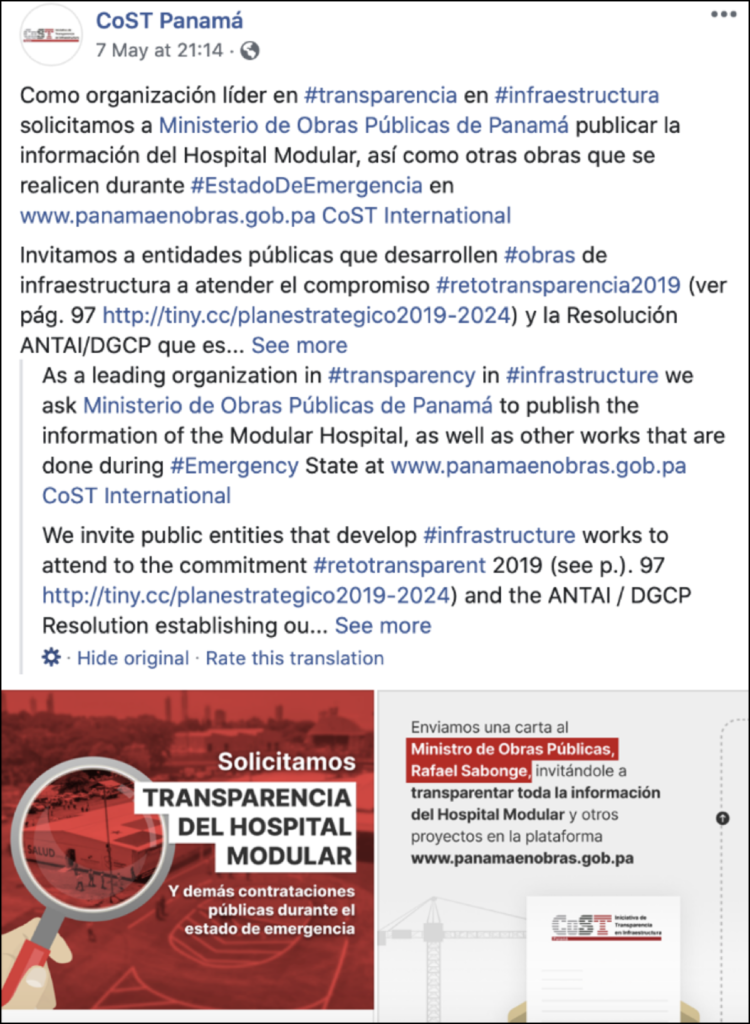 In August, Panama continued its advocacy activities and held a high level webinar to discuss economic priorities for the country’s post-Covid recovery. CoST Panama Country Manager Aída Martínez spoke on infrastructure project performance indicators, while Latin America Regional Manager Manuel González participated in a session on transparency and integrity in infrastructure.
In August, Panama continued its advocacy activities and held a high level webinar to discuss economic priorities for the country’s post-Covid recovery. CoST Panama Country Manager Aída Martínez spoke on infrastructure project performance indicators, while Latin America Regional Manager Manuel González participated in a session on transparency and integrity in infrastructure.
In Panama, the programme has highlighted certain disclosure issues with the Minister of Public Works, including that data be disclosed on Panama’s new modular hospital built at a cost of US$ 6.5 million to care for patients infected with coronavirus. As of September, CoST Panama’s efforts to secure greater transparency around the modular hospital continue: the programme submitted a number of recommendations to the Comptroller General of the Republic of Panama as part of a citizen consultation on the project, calling for project data to be disclosed on the Panamá en Obras portal.
In Uganda the impact of Covid comes at a time when the country has suffered severe widespread flooding, washing away key infrastructure and threatening the lives and livelihoods of many. In a series of online calls CoST Uganda raised the importance of delivering infrastructure that is not only accountable to citizens but is ‘built back better’ – to be safe, resilient and fully operational during crisis. In turn, the efforts of the programme saw a cooperative response from the Ministry of Public Works which publicly committed to set up an authority to manage and oversee Uganda’s river and water bodies in charge of infrastructure development.
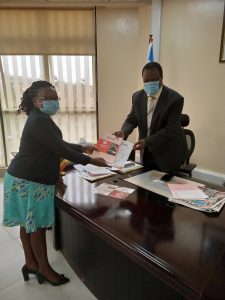 The programme also published an open letter addressed to the government and public entities so that emergency procurement and infrastructure works carried out during the crisis do not risk the integrity of public funds. As demonstrated by the example of Uganda, using creative forms of digital engagement has helped to ensure that the pandemic-related restrictions and emergency powers do not close participatory spaces. With the ease of restrictions, CoST Uganda resumed direct engagement with public authorities and officials. Programme Manager, Olive Kabatwairwe, met the Minister for Water and Environment, Hon. Cheptoris Sam Mungusho, to present CoST Uganda’s Third Assurance Report and discuss issues pertaining to environmental infrastructure.
The programme also published an open letter addressed to the government and public entities so that emergency procurement and infrastructure works carried out during the crisis do not risk the integrity of public funds. As demonstrated by the example of Uganda, using creative forms of digital engagement has helped to ensure that the pandemic-related restrictions and emergency powers do not close participatory spaces. With the ease of restrictions, CoST Uganda resumed direct engagement with public authorities and officials. Programme Manager, Olive Kabatwairwe, met the Minister for Water and Environment, Hon. Cheptoris Sam Mungusho, to present CoST Uganda’s Third Assurance Report and discuss issues pertaining to environmental infrastructure.
Other CoST activities have also resumed – in line with necessary safety precautions. Site visits are back on in El Salvador, giving CoST assurance teams the opportunity to assess projects being implemented across the country.
In Afghanistan, CoST brought together stakeholders from government, the private sector and civil society for a webinar on the country’s newly built health infrastructure. The event gave attendees the opportunity to raise grave concerns over a lack of disclosure and transparency on key projects including hospitals and clinics. In November, CoST Afghanistan held a high-level Infrastructure Transparency Talk, which brought stakeholders together to discuss Afghanistan’s infrastructure in the context of the National Peace and Development Framework. CoST Afghanistan later joined civil society voices calling for more long-term vision in the Afghanistan’s infrastructure development.
Adding further scrutiny to health-related infrastructure
At this critical time in health-infrastructure delivery, CoST programmes are both responding to government requests and applying the CoST approach in the assurance process.
In Honduras the President cited CoST as a governance component which should be integrated in the country’s new health infrastructure plans, which as of late May includes the construction of 93 health facilities. In September, CoST Honduras published disclosure levels recorded by procuring entities throughout 2020. INSEP, the entity in charge of the recently delivered Policlinic Hospital, recorded a disclosure level of 73%. However, by September 2020 the Office of Health (Secretaria de la Salud) failed to disclose any project information on the SISOCS database.
CoST Panama recently adjusted the scope of its assurance process to focus on the health sector as infrastructure investment in this area grows. Doing so will also provide valuable insight which can inform new transparency and accountability policies in the health sector more broadly.
CoST Malawi is also collaborating with the Ministry of Health answering to its request to develop an assurance process focussed on the review of the Malawi Cancer Centre.
In January 2021, CoST West Lombok held an assurance workshop for 40 academics and construction practitioners in West Lombok, Indonesia. Organisers of the workshop overcame numerous logistical challenges, including balancing time zones between Asia and Europe to allow for attendance from CoST International, maintaining social distancing measures in West Lombok, and simultaneous interpretation. Participants were introduced to the CoST assurance process and explored how its application could help strengthen West Lombok’s infrastructure delivery.
Participation and collaboration in the Covid-era
Bringing together government, private sector and civil society, the media and citizens is a core part of the CoST approach. We have seen immense benefits of opening communication between these stakeholders and enabling them to speak from a neutral platform.
In some contexts Covid-19 has generated an enhanced appreciation of this collaboration in addressing the range of complex health, social and economic challenges being faced at national and local levels. Similarly, CoST programmes have been strengthening partnerships with these core stakeholders, resulting in impressive outcomes.
Developing new partnerships and networks across
Civil society and the media
CoST Malawi added its voice to calls from the Open Contracting Multi-Stakeholder Group (OC-MSG) for the establishment of a high-level, multi-stakeholder committee to maintain transparency and accountability during the pandemic. The OC-MSG comprises several Malawian civil-society organisations campaigning for higher standards in open contracting, including CoST Malawi, the Centre for Human Rights and Rehabilitation and the Malawi Economic Justice Network. In the first instance the group has called for the release of detailed information in respect to public procurement at an institutional, district, regional and national level.
CoST El Salvador has been using the pandemic to engage with new networks in the construction industry, promoting and participating in public talks to discuss the main challenges facing the sector.
CoST Panama gained new supporters in the push for more accountability in the health sector, such as the media channel ‘Politica en Positivo’ that is helping to spread the work of CoST in Panama.
The private sector
In Costa Rica, the CoST multi-stakeholder group is working with procuring entities to assess the impact of the emergency on Public-Private Partnerships (PPPs). The work has the potential to help policy makers assess how PPP schemes can be used in the post-pandemic recovery plans.
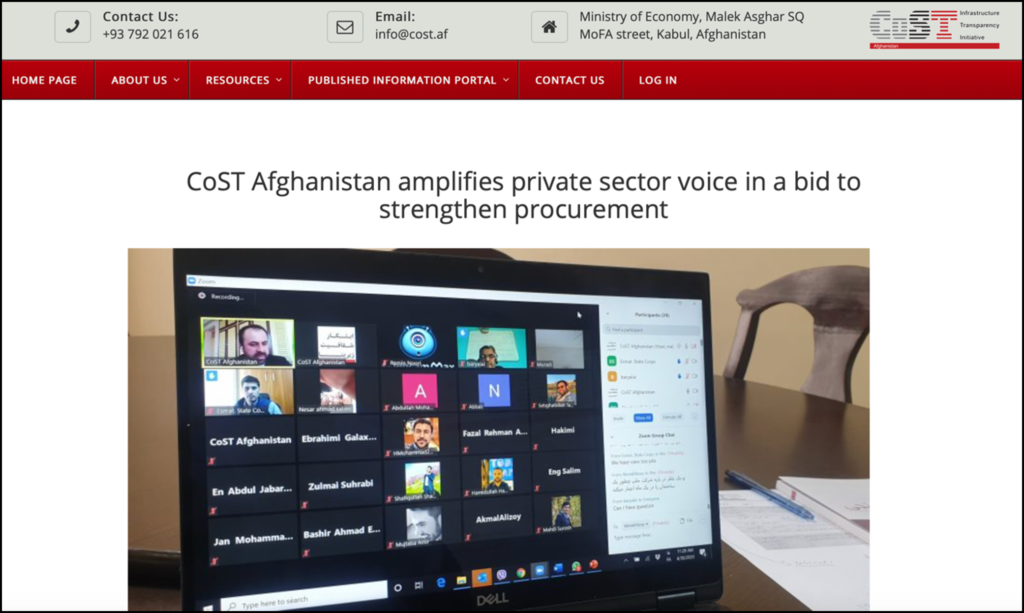 In Afghanistan CoST engaged the construction industry, alongside representatives from civil society, academia and the government, for a webinar on the challenges of doing business with the government. The webinar allowed the industry to voice their concerns and views on how public procurement should improve to ensure higher levels of competition and efficiency – topics that are of key importance in the post-pandemic recovery activities. Bringing together government and the private sector for open discussion in this way is enabling greater trust between them.
In Afghanistan CoST engaged the construction industry, alongside representatives from civil society, academia and the government, for a webinar on the challenges of doing business with the government. The webinar allowed the industry to voice their concerns and views on how public procurement should improve to ensure higher levels of competition and efficiency – topics that are of key importance in the post-pandemic recovery activities. Bringing together government and the private sector for open discussion in this way is enabling greater trust between them.
In Uganda, CoST organised a high-level engagement session between the private sector and government on the theme of ”promoting fair business practises through infrastructure procurement transparency”. Streamed live on TV, the session was part of an ongoing project, funded by the UK Department for International Development’s Business Integrity Initiative, to advance fair business practices. Key to this is the uptake of disclosure through the Open Contracting for Infrastructure Data Standard (OC4IDS) and increased data use, to ultimately build trust through transparency.
Government
In Honduras, the programme has been informing the government’s Covid-19 office in charge of the crisis response and recovery, opening opportunity for the inclusion of red flag projects in the CoST Honduras assurance process. Its initial dialogue with the Covid-19 office was centred on some alarming issues raised in a webinar with private sector and civil society such as that projects were being concluded with no oversight and that authorities and contractors seemed to be taking advantage of the emergency to steamroll other infrastructure projects.
This then led to a formal public statement by the President of Honduras reiterating that procuring entities should continue to comply with obligations of full disclosure regarding emergency procurement.
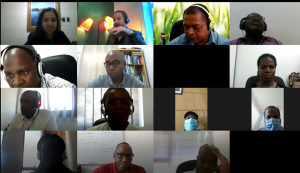
Towards the end of 2020, CoST Mozambique convened a three-day webinar with representatives from key public bodies (including the Roads Fund, the Ministry of Finance and the Ministry of Transport), civil society and the private sector (including the Association of Road Transport Representatives and the Mozambique Construction Federal Association). This was a key opportunity for a multi-stakeholder discussion around the CoST approach and its implementation in Mozambique, which had so far been restricted as a result of the pandemic.
Increasing public participation
As our work with civil society, the media and citizens has expanded over recent years – with these actors helping to advance accountability – we have seen concrete impact. Covid-19 brought challenges to this area of work, but our programmes are showing how innovation can still amplify the voice of citizens to decision-makers.
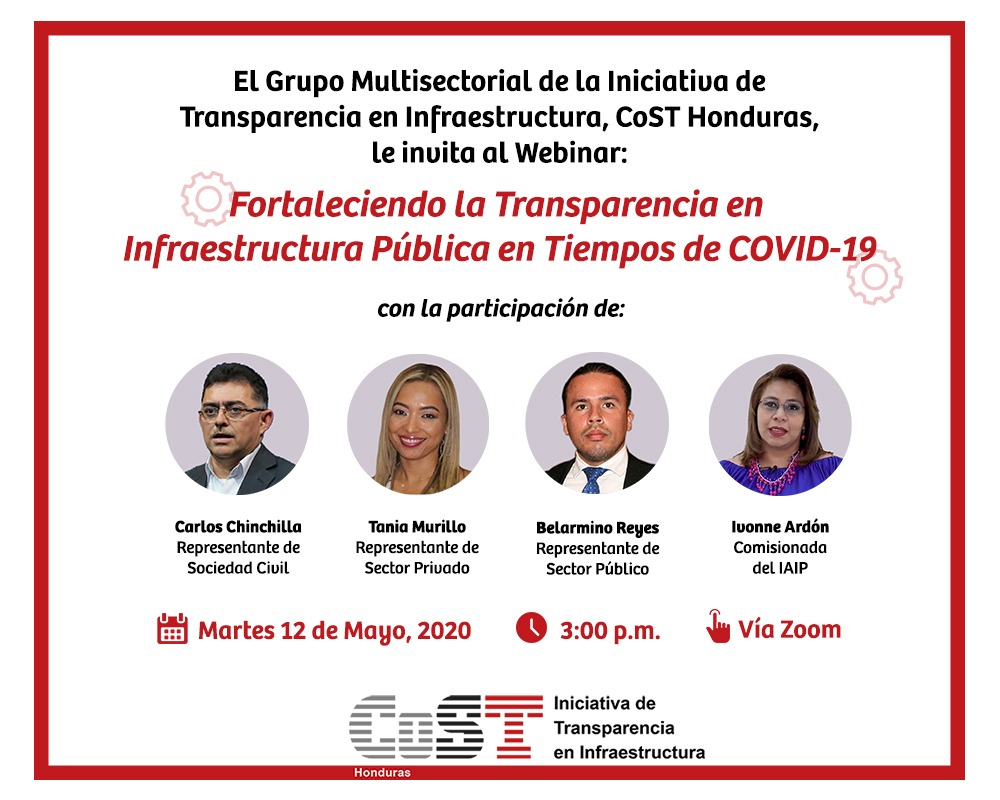 In Honduras, CoST convened an open webinar where representatives from the private sector, civil society, media, Citizen Transparency Commissions (CTCs) and academia discussed ways to strengthen oversight of public spending during the pandemic. In total 50 people from half a dozen countries across Latin America participated, with a panel formed of CoST Honduras’s MSG and Ivonne Ardón, the Commissioner of Honduras’s Institute for Access to Public Information (IAIP).
In Honduras, CoST convened an open webinar where representatives from the private sector, civil society, media, Citizen Transparency Commissions (CTCs) and academia discussed ways to strengthen oversight of public spending during the pandemic. In total 50 people from half a dozen countries across Latin America participated, with a panel formed of CoST Honduras’s MSG and Ivonne Ardón, the Commissioner of Honduras’s Institute for Access to Public Information (IAIP).
In Guatemala, in addition to its multi-stakeholder group meetings being conducted online, it will be carrying out a series of induction webinars with civil society organisations on the CoST approach which will inform social participation throughout the response and recovery stages of the pandemic.
CoST Uganda is also convening digital events to foster participation. One webinar explored the role of the media in strengthening transparency, bringing together participants from across Africa, Asia and the UK to deliberate the key challenges faced by journalists reporting on infrastructure delivery during times of crisis. In August, CoST Uganda found a novel way to stimulate social participation whilst maintaining safe distance, granting citizens a space to voice concerns around a lack of engagement from the government when delivering local projects (see image below).
As Covid-19 lockdowns are lifted, the engagement with citizens restarts. Together with the Ministry of Works and Transport, CoST Uganda coordinated a follow-up baraza to hear from communities affected by roadworks on the Busoga College access road. The baraza was well attended by students and staff of Busoga College, 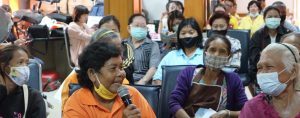 local residents, representatives from the National Water & Sewerage Corporation and the Jinja District Works Department.
local residents, representatives from the National Water & Sewerage Corporation and the Jinja District Works Department.
In Thailand, CoST community meetings developed as part of CoST Thailand’s assurance process – which were recently praised by the World Bank – are back on. CoST Thailand’s use of Facebook Live to transmit the meetings continues to amplify engagement and participation.
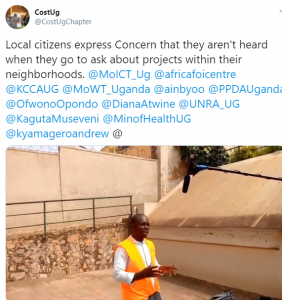
Diversity and inclusion
CoST Uganda’s varied digital events programme during Covid-19 has included a session covering the challenges faced by women in infrastructure. Addressing the many pitfalls faced by women aiming for a career in the infrastructure sector – whether being dissuaded from doing so at a young age, or facing ingrained prejudices in the workplace – the webinar featured in-depth contribution from key-note speaker Betty Nakamya. As Chairperson of the Uganda Association of Consulting Engineers, she provided insight into the working environment for female engineers in Uganda and the need for female contribution to the design and construction of infrastructure.
Heightened collaboration across members
Regionally
In addition to individual actions, a regional collaborative response has been put in place by Latin America members where a joint study is under development with a particular focus on assessing and contrasting emergency procurement regulations and how governments are dealing with citizen calls for transparency. Multi-stakeholder group members from the region, in their influential positions across government, private sector and civil society, will play an integral part in informing the study.
Globally
In mid-June CoST members will be coming together online for our annual global workshop, where Covid-19 response will be a key feature. This will be a unique event for CoST as we deliver an impressive agenda remotely across four contrasting time zones with our 19 members. Suffice to say, good facilitation and interaction will be key and here, our programmes will be given good opportunity to share their approaches, challenges and solutions with one another.
Conclusion: The Value of CoST
We hope this compilation usefully demonstrates that even in an adverse scenario tenacity and innovation can effectively foster collaboration and trust across government, private sector, civil society and citizens and further infrastructure transparency and accountability. The agile adaptation and resilience demonstrated by our members is paving the way to myriad responses and new strategies that are invaluable in a time of increased uncertainty and risk.
Covid-19 presents many obstacles but it is important to take stock of any lessons learnt. This may include us using some of the innovative approaches applicable in the current context in our longer-term delivery. More immediately we will be producing a special guidance piece on how CoST can be applied in crisis settings which will inform not only our members but other governments and transparency and accountability initiatives to help deliver a robust response in any future crises. And we will be updating our CoST Business Plan 2020 – 2025: Strengthening economies and improving lives to be Covid-response relevant as well as feedback received from our recent consultation. We look forward to sharing these key products and more lessons in due course!
This compilation is a work-in-progress and we will continue to update with new information when available.
Please send any comments and / or questions to:
